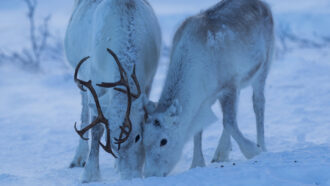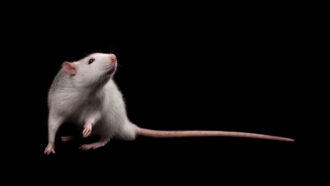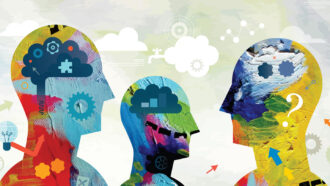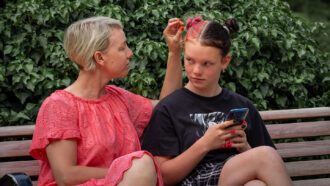
Laura Sanders reports on neuroscience for Science News. She wrote Growth Curve, a blog about the science of raising kids, from 2013 to 2019 and continues to write about child development and parenting from time to time. She earned her Ph.D. in molecular biology from the University of Southern California in Los Angeles, where she studied the nerve cells that compel a fruit fly to perform a dazzling mating dance. Convinced that she was missing some exciting science somewhere, Laura turned her eye toward writing about brains in all shapes and forms. She holds undergraduate degrees in creative writing and biology from Vanderbilt University in Nashville, where she was a National Merit Scholar. Growth Curve, her 2012 series on consciousness and her 2013 article on the dearth of psychiatric drugs have received awards recognizing editorial excellence.

All Stories by Laura Sanders
-
 Humans
HumansWiggling ears may have once helped boost human hearing
Ancient ear muscles may not help us hear today. They can, however, offer one readout of how hard someone is trying to listen.
-
 Health & Medicine
Health & MedicineScratching an itch has both good effects and bad
Mice that scratch itchy ears trigger more redness and swelling — but also may combat harmful bacteria.
-
 Environment
EnvironmentMore and more, microplastics are collecting in our brains
Over eight years, the mass of microplastics in human brains increased by some 50 percent. There are growing hints that internal microplastics may harm us.
-
 Brain
BrainScientists are exploring why some people don’t have a mind’s eye
A researcher with aphantasia is studying how different senses work together in the brain — and when they don’t.
-
 Brain
BrainOuch! The pain of pulled hair registers superfast
A hair pull is detected by a protein used to sense light touches. It also travels faster than most other types of pain.
-
 Animals
AnimalsTiny treadmills reveal how fruit flies sprint
Forcing fruit flies to move shows how the insects coordinate their steps. This holds clues to other animals’ brains and movement.
-
 Animals
AnimalsReindeer can chew food in their sleep
Brain waves and behaviors suggest that reindeer can doze while chewing.
-
 Animals
AnimalsLike tiny Jedis, rats can move digital objects with their brains
Rats imagined their way through a 3-D virtual world in a new study. The results hint at how brains think about places they aren’t physically in.
-
 Brain
BrainBrain scans hint at how well teens will manage pandemic stress
A study that followed hundreds of teens during the COVID-19 pandemic now suggests why some of them handled long-term stress better than others.
-
 Brain
BrainNeuroscientists use brain scans to decode people’s thoughts
The research may lead to new devices for people who can’t communicate easily. It also raises privacy concerns.
-
 Brain
BrainWhy teens can’t help tuning out mom’s voice
Teens often tune out what their mom is saying. Normal brain changes during adolescence could explain why, new research shows.
-
 Brain
BrainNodding off may turn your creativity on
In an experiment, people who fell into a shallow sleep were more likely than non-sleepers or deep sleepers to discover a sly math trick.